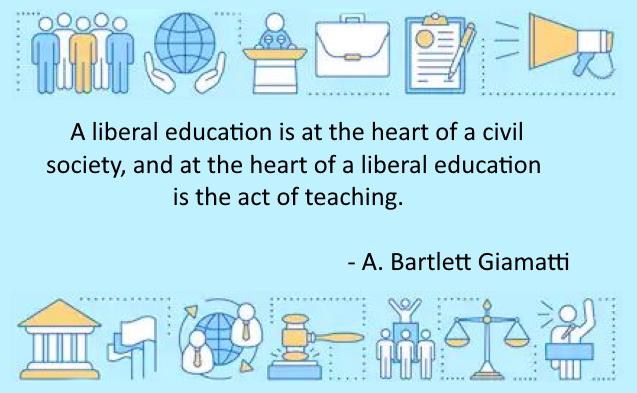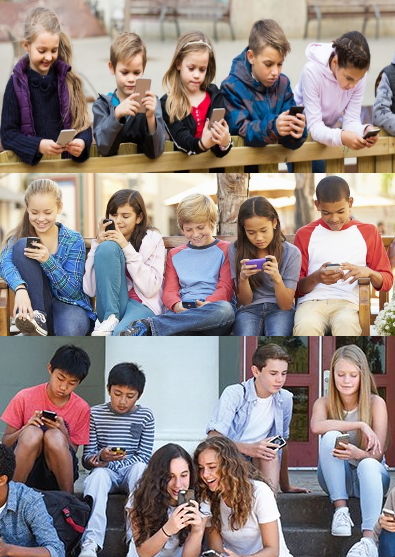
When I am asked about the role I play as a teacher I often describe it as being responsible for the “social, emotional and the intellectual” development of children for the betterment of society. I often then go on further to state that often the “intellectual” development is either inhibited by or is dependent upon the “social” and “emotional”, meaning that an adolescent student’s social and emotional needs can often get in the way of their academics and learning.
Most teachers recognize this and in university we take courses on child psychology and development, knowing that if we better understand the human condition during their public school years, we can better teach and facilitate learning. What intrigues me is that often what we know about child psychology and development is either dismissed or ignored when it comes to pedagogy. Practices are promoted that assume that all children can be motivated to be intrinsic, life-long critical learners in all subject matters and we seem to ignore basic child psychology around basic needs. Issues around poverty, security and emotional needs are recognized when trying to get students into the school building itself, but curricular practices often do not take those conditions into account. Most teachers do understand these issues because they are essentially the front-line workers who deal with the “social and emotional” on a daily basis, but I do question a disconnect that I seem to see with regards to top-down dictated teaching practices, and the front line experiences and practical wisdom that teachers possess.
I have been teaching long enough to see educational trends come and go (and return) and I look for a more balanced approach to learning in the classroom. School age children are just that; children, with all of that which defines their developmental age. The human condition regarding peer influences and social connections mean that children do not approach their learning with the same passion or motivation that adults have. Teachers inspire and motivate in order to facilitate learning, but we cannot assume that all children will share the teacher’s passion. A student may be intrinsically engaged in one subject area, but not another, but this does not dismiss the need for learning in all areas.
 The broad based “intellectual” development of a liberal education is the eventual aim of schooling (and for a functioning society) and it is foolish to think that an adolescent aged child has the knowledge or wisdom to make important decisions about what they need to learn. Teachers can use technology to help students engage in learning, but it shouldn’t distract from, or diminish the learning. Adolescents have enough distractions in their social and emotional lives just as a result of their developmental age. In a world with limitless access to information and distraction, it is getting harder to impart “truthful knowledge” or knowledge based on facts and science because of the perfect storm of limitless disinformation, seemingly irresistible online social distractions and adolescent apathy towards learning that isn’t tailored to their specific interests in the moment.
The broad based “intellectual” development of a liberal education is the eventual aim of schooling (and for a functioning society) and it is foolish to think that an adolescent aged child has the knowledge or wisdom to make important decisions about what they need to learn. Teachers can use technology to help students engage in learning, but it shouldn’t distract from, or diminish the learning. Adolescents have enough distractions in their social and emotional lives just as a result of their developmental age. In a world with limitless access to information and distraction, it is getting harder to impart “truthful knowledge” or knowledge based on facts and science because of the perfect storm of limitless disinformation, seemingly irresistible online social distractions and adolescent apathy towards learning that isn’t tailored to their specific interests in the moment.
Quoting Barbara Stripling and Judy Pitts, Ann Reidling notes in her book; Reference skills for the school librarian: Tools and tips that they discovered that;
“…students have little prior knowledge of the information-seeking process, have fragmented understanding of subject knowledge, and that students do not understand that their information-seeking knowledge depends on content knowledge and vice versa.” (Reidling, pg 13)
What interests me is how do we as educators impart, most effectively and efficiently, the necessary truthful information needed for a functioning society, to a clientele that is more prone to social-emotional distractions than actual learning? How do we best impart knowledge without falling into the trap of “rabbit-hole” student-based researching that leaves gaps in their understanding and knowledge base?
Works Cited:
Richardson, Will (2012). Why School? How Education Must Change When Learning and Information are Everywhere [eBook edition]. Ted Conferences.
Riedling, Ann Marlow, Loretta Shake, and Cynthia Houston. Reference skills for the school librarian: Tools and tips. ABC-CLIO, 2013.